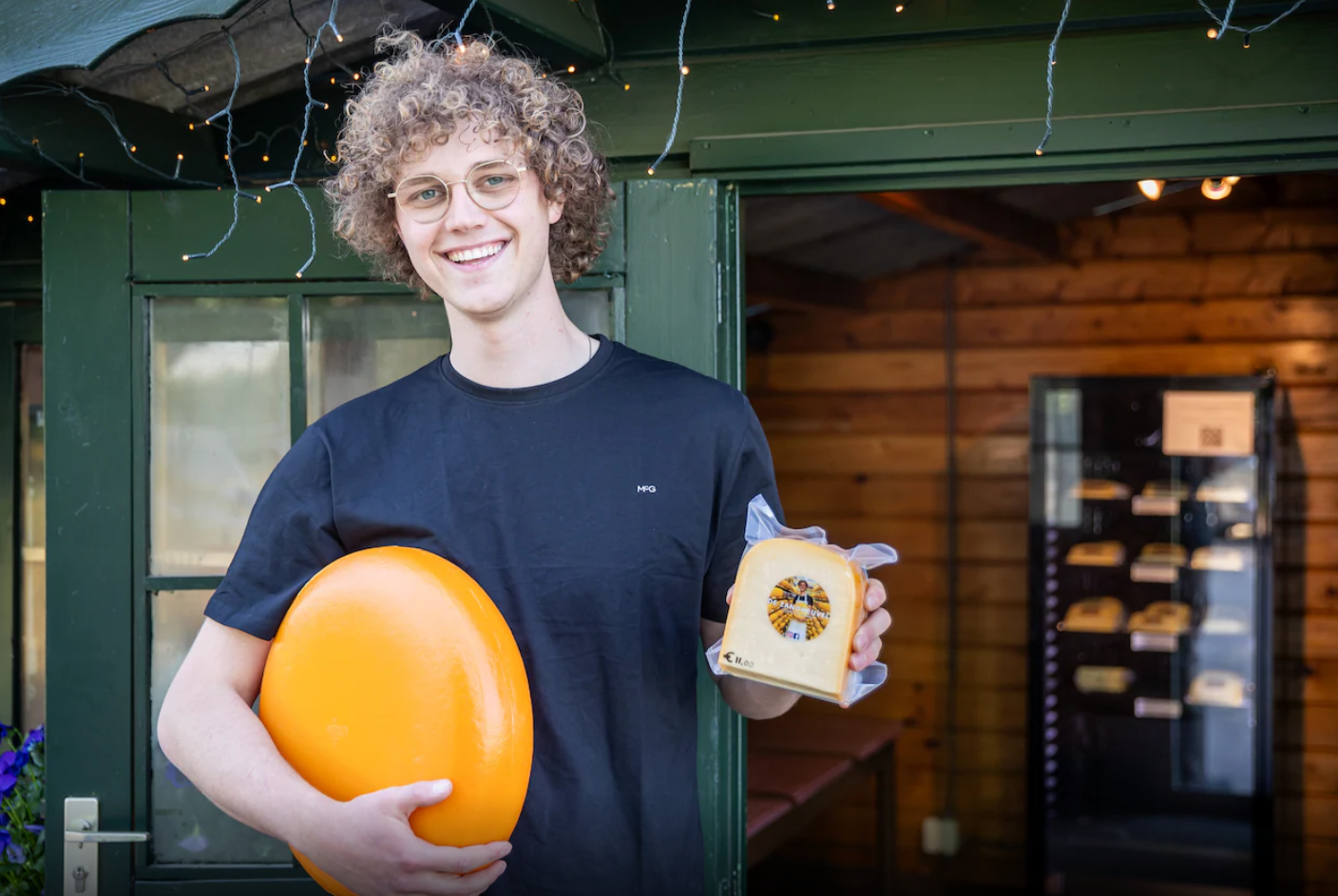WUR scientists Geert Hoekstra of Performance & Impact Agrosectors and Miriam Quataert of Food Technology, work as practor in the mbo. ‘Also students of very practical study programmes need to understand the protein transition and be able to apply it in their work.’
Miriam Quataert has been a practor (the mbo variant of the lecturer in higher vocational education) at the SVO vocational food programme for the protein transition theme since May 2023. ‘WUR’s mission is to translate scientific knowledge from research into education and practice. In my eyes, that also includes the mbo. Also students of very practical study programmes need to understand the protein transition and be able to apply it in their work. They are the butchers, caterers and greengrocers of the future. I give the protein transition a place in their curriculum and encourage research-based learning in secondary vocational education so that they can contribute to practical research.’
Hoekstra works at Firda in the practorate Fisheries, Innovation and Entrepreneurship. Students at his school learn about ‘everything to do with sailing’: from merchant shipping to fishing and from inland vessels to fish processing. ‘The main task I have is to translate WUR’s insights into the classroom of these students. There is a lot going on in this sector. Think, for example, of the Brexit since 2020 or the ban on pulse fishing since 2021. At the time, the latter was a direct reason for Firda to seek better cooperation with science.’
What does a WUR-practorate provide the mbo?
Hoekstra: ‘As a practice-oriented vocational school, you can actually choose two routes to gain access to the network of knowledge institutions. Either you send teachers out to study and get involved in science and research. Or you bring people from science and research to your school to share their knowledge.’
Quataert: ‘A practor has access to up-to-date knowledge and is good at networking, setting up projects and collaborating with students, teachers and the business community.’
Are there advantages for WUR?
Hoekstra: ‘Yes, it cuts both ways. Through my professorship, WUR can test theory in practice. And when we do research on fisheries from The Hague or Wageningen – often commissioned by a ministry or the European Commission – we are physically distant from the fishing communities themselves. If you want to know what is going on in that sector, you have to go among the target group. And it is good if the practitioners of the future come into contact with WUR early in their careers – that they trust science in general, and Wageningen research specifically. The sector should not see us as the evil research world. If we do this well, WUR will also reap the benefits.’
‘In addition, lenders are increasingly encouraging you to collaborate in new projects with business and professional education. As a result, in theory it yields more and sometimes other – practice-oriented – projects.’
Quataert: ‘A practical department extends the chain. Wageningen Food and Biobased Research works on product development, but it turns out to be difficult to put our knowledge and new things into practice and onto the market. I can do that through my practorate, in projects in the real world. The SVO vocational training in food builds on knowledge developed at WUR.’
What stands out about mbo students compared to hbo or wo students?
Quataert: ‘MBO students tend to think more quickly from their feelings than from their heads. Everything you teach must have a link to practice that makes it applicable. They are doers. University and college students first make a plan, whereas MBO students first do and only then think about what is actually happening. I want to teach them to think a bit more before they start.’
‘When I gave a workshop with plant-based dough the other day, the students were in the kitchen before I had explained all the steps of my lesson. Although the workshop produced the desired results, next time I will take a different approach. By having students first think about what you can make from the dough, they learn something about doing research and working systematically. If you make a plan and execute it, you can then build on it because you can repeat what you did.’
Hoekstra: ‘That sounds very recognisable. We recently organised a hackathon. In a short time, students had to come up with a new technique for fishing if Europe would no longer allow bottom trawling. The university students started by analysing the question behind the question. By the time they started looking at something practical, mbo students had already come up with something using the simulator. Later, the Wageningers went on to question the MBO students to hear about the practicalities at sea. They are two worlds that can complement each other well.’
Translated with help of DeepL.com

 Through the practorates, WUR has the opportunity to test theory in practice. Photo Shutterstock
Through the practorates, WUR has the opportunity to test theory in practice. Photo Shutterstock 
